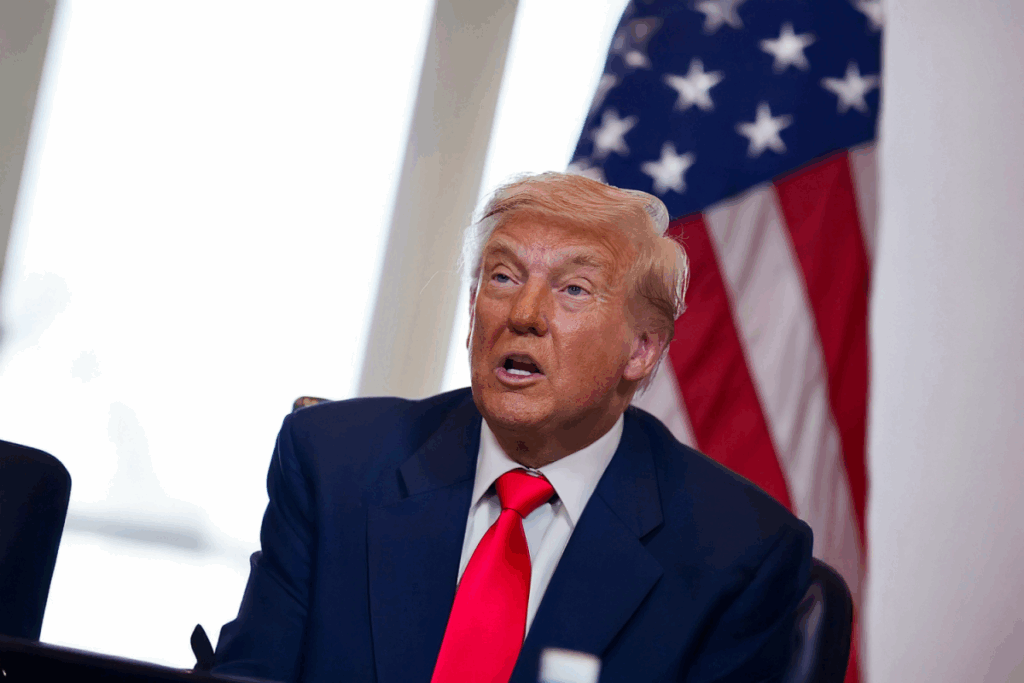A New Escalation in Voting Rules Debate
US President Donald Trump has announced plans to sign an executive order requiring every voter to show identification in all elections across the country. He emphasized there would be “no exceptions,” presenting the initiative as a step to protect the integrity of elections.
The move immediately sparked controversy, as legal scholars and political observers questioned whether a president has the authority to unilaterally impose such requirements. Under the US constitution, states are primarily responsible for regulating elections, while Congress holds limited power to create nationwide standards. The executive branch has no explicit role in defining voting rules.
Likely Court Battles Ahead
Trump’s announcement sets the stage for an intense legal fight that could eventually reach the US Supreme Court. Civil rights groups and voting access advocates are already preparing challenges, arguing that the order would be unconstitutional and harmful to vulnerable populations.
Studies have repeatedly shown that voter fraud in the United States is extremely rare. Meanwhile, strict voter ID laws disproportionately impact seniors, low-income citizens, students, and people with disabilities. Research from the Brennan Center for Justice estimates that up to 11% of eligible voters lack the type of identification required in states with the toughest laws, raising concerns about millions potentially being disenfranchised.
Legal experts note that while presidents can influence federal election practices through oversight of federal agencies, they lack the power to override state laws. Trump’s reliance on executive authority for voter ID would likely become one of the most high-profile constitutional challenges in years.
Targeting Mail-in Voting
Alongside the push for mandatory voter identification, Trump declared his intent to ban voting by mail except in cases involving military personnel and citizens who are seriously ill. He has long attacked mail-in ballots, baselessly claiming they are vulnerable to widespread fraud, despite extensive evidence to the contrary.
Mail-in voting has been a feature of American elections for decades and is widely used in states such as Colorado, Oregon, and Washington. Trump has frequently connected his push against absentee ballots to his false claims that the 2020 election was stolen. Earlier this month, he incorrectly asserted that the United States is the only country that allows voting by mail, even though dozens of nations have systems permitting it.
Political and Social Implications
The announcement is likely to further polarize an already heated political climate. Supporters of the executive order argue that voter ID is a basic safeguard that ensures fairness. Opponents contend it is a thinly veiled attempt to suppress turnout among groups less likely to have valid identification and more likely to vote against Trump.
The issue of voter ID has long been a flashpoint in American politics. Some states, largely led by Republican legislatures, have adopted strict requirements, while others have resisted, citing the disproportionate burden on certain populations. Trump’s move to federalize the policy represents a dramatic escalation that could reshape the debate ahead of future elections.
Critics also point to the symbolic significance of Trump’s insistence on framing the measure as essential to “election integrity.” For many, it revives the unsubstantiated narrative of mass voter fraud that has fueled skepticism about past results and eroded public trust in democratic institutions.
Looking Ahead
If signed, the executive order would trigger immediate lawsuits challenging its legality. Courts would then determine whether the president overstepped constitutional limits. Even if struck down, the order could serve as a political tool for Trump, energizing his supporters who see voter ID as a critical issue.
Meanwhile, voting rights organizations are expected to mount campaigns to inform citizens about the implications of such a mandate and to push back against any attempt to curtail mail-in ballots.
The outcome of this legal and political battle will be closely watched not only in Washington but across the nation, as it touches the core of American democracy: the right to vote.


